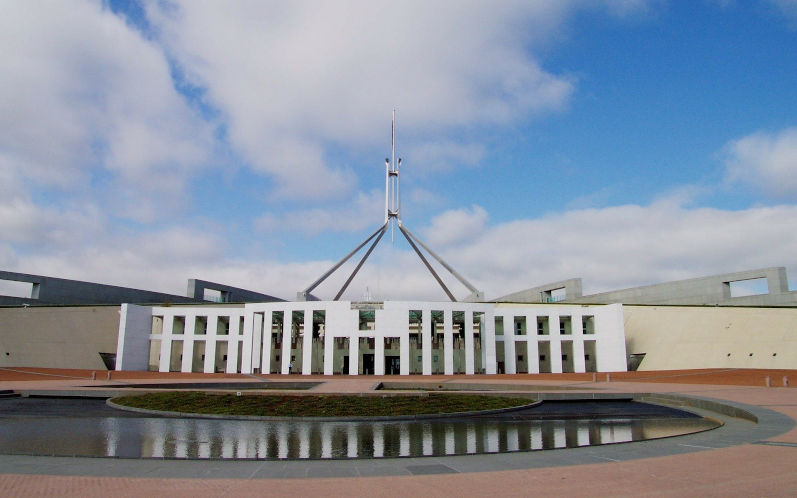The problems with mandates - or lacking one
June 8, 2022
Within days of the election, the Greens were setting out the mandates they claim to have won. In particular, according to their leader, Adam Bandt, his party had a mandate to stop new coal and gas mines. He said it would introduce legislation in the Senate to block any new mines.
The trouble is, while his party has four members in the House of Representatives and a dozen Senators, it doesnt have the power to directly achieve its so-called mandate. The election results have not provided the Greens with a mandate to put its policies fully into effect. They can introduce legislation, but they dont have the ability to force its adoption by the Parliament, or its implementation by the government.
A mandate to draw attention to your policy but not to put it into effect. Hardly a big deal.
The very notion of a mandate is problematic. In the past few years we have become very familiar with the idea that something might be mandatory meaning, during the epidemic, a compulsory requirement to wear a face mask, or for particular jobs in health care and elsewhere, being fully inoculated.
In political discourse, a mandate means a direction from the voters for an elected representative or political party to carry out particular policies, or more generally, to govern and in doing so, to enact the policies it proposed during the election campaign, or as part of its general platform.
The notion is a British one. It doesnt translate very well to Australia where, except in Queensland and the two mainland territories, the parliament has two houses and the government may not have a majority in the upper house and may be unable to enact all that it promised to do.
And while the government has a mandate generally to govern (though even this convention was overturned in the 1975 dismissal of the Whitlam government), its mandate to introduce particular policies may be countered by the claim of other parties to have a mandate from the electorate to oppose those policies.
Ultimately, the claim to have a mandate is just another piece of political rhetoric, a debating point about legitimacy that is aimed at voters and isnt terribly relevant to the exercise of power by politicians.
While the Greens and the individual teal independents can claim mandates for particular policies, these are no more than directions those MPs and Senators accept to do their best to promote those particular policies.
But the teals in particular should be able to front their electorates in three years time with claims that they have delivered at least in part on their mandates. All campaigned on three basic issues: climate, integrity and women. The government has every intention of moving on each of these, though it wont satisfy all of the demands of the teals, or the Greens.
But they will be able to claim that they made a difference and delivered what the MPs they displaced all Liberals not only failed to produce but actually opposed when they were in office. They will have a positive story to tell about their mandates, and if they campaign as well as they did in this election, there is every reason to expect that most will be re-elected next time.
On the other hand, the Liberal and National Parties cannot lay claim to a mandate of any kind. Having sought a mandate to govern and been rejected, they are now free to adopt or reject whatever policies they now consider appropriate.
In doing so they will be guided primarily by one strategic consideration how to fight the next election. The advice that most disaffected Liberals are giving them is that they should try to move towards the centre. Already, however, the newly endorsed Liberal leader, Peter Dutton, seems to be taking his party to the right.
It doesnt really matter that the ground in that direction is not particularly fertile. The Liberals will be competing for votes with two established groups Hansons One Nation and Palmers United Australia Party who together won about 9 per cent of the votes on 21 May, of which 70 per cent came back to the Liberals anyway in the form of preferences.
Moving right may simply reflect Duttons personal political stance to judge by his performance as a Minister. On the other hand it is not at all clear that moving towards the centre is a practical solution. Of course the Liberals have to win back some of the seats the teals have taken, but they wont be able to do so by adopting teal policies. To do so would make them less distinguishable from Labor.
The Liberal Party cannot do that - it needs to be different, to provide voters with a choice. Otherwise assuming Labor doesnt make a complete mess of being in government people are likely to stick with the party in power. Another danger is that in moving to the right the Liberals could antagonise some of their current supporters, in much the way that their confrontationist policy towards communist China disappointed many of their supporters with a Chinese heritage.
Winning from Opposition is different and difficult. Parties need to provide good reasons why they deserve a mandate to govern. Even then, the accepted wisdom in Australian politics based on experience (with very few exceptions) is that the electorate doesnt vote Oppositions in, it votes governments out.
Thats what happened a few weeks ago. It’s another reason why in Australia mandates dont count for very much at all.

